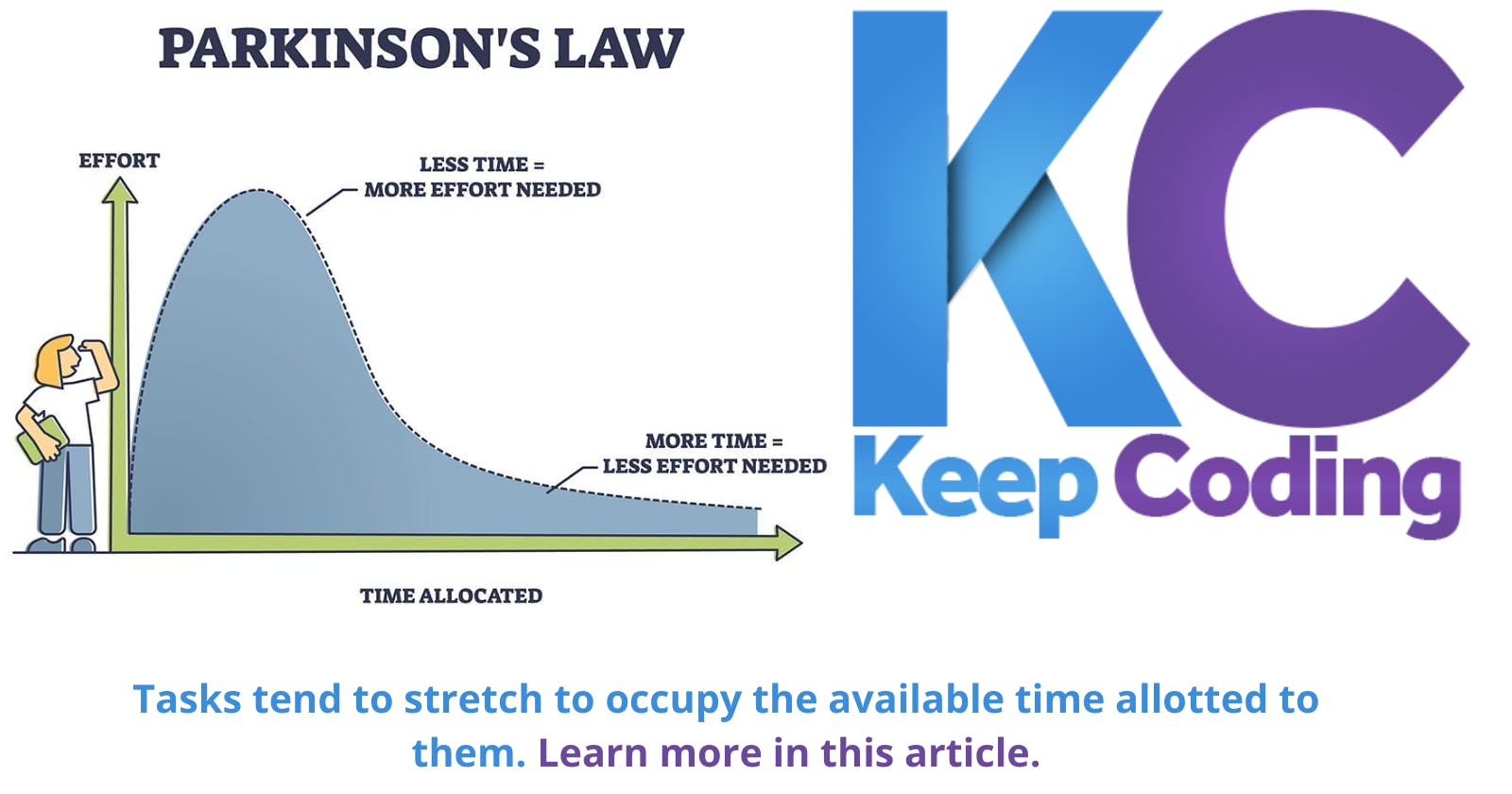Parkinson’s Law
Tasks tend to stretch to occupy the available time allotted to them.
Parkinson’s Law
Parkinson’s Law, coined by Cyril Northcote Parkinson in 1955, suggests that work expands to fit the time allotted for its completion. This often leads to increased stress and complexity as tasks are prolonged unnecessarily. While not a scientific principle, it's a widely observed phenomenon that affects personal productivity and organizational growth.
Understanding Parkinson’s Law is crucial as it highlights how tasks can become more burdensome with extended timelines. For instance, giving oneself excessive time for a task can lead to procrastination and inflated perceptions of complexity. The mental stress of looming deadlines often outweighs the actual effort required for task completion.
To avoid falling prey to Parkinson’s Law, effective time management strategies are essential. These include careful planning, setting realistic deadlines, prioritizing tasks, and breaking down projects into manageable steps. Using timers, taking regular breaks, and avoiding multitasking also help maintain focus and productivity.
By being mindful of Parkinson’s Law and implementing these strategies, individuals can optimize their productivity, reduce stress, and make the most of their time.
